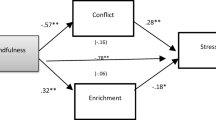Abstract
Honorary fellowship awards are given each year by professional organizations in recognition of the achievements and future promise of psychiatric trainees. No data have been published to evaluate the characteristics of, or effects on, awardees. A 50-item instrument was developed to test four hypotheses. The confidential survey was mailed to award recipients identified by six major professional psychiatric associations. Data were analyzed by comparing responses with χ2 statistics and repeated measures multivariate analyses of variance. Responses from the award recipients from five of the organizations (N = 182, response rate = 55%) were analyzed. Fellowship awards were perceived as helpful to professional development. Certain fellowship-related experiences were seen as more important than others, and these varied as a function of the awarding organization and by gender. The awards had less importance than the recipients expected. Meeting with colleagues and leaders or mentors, prestige associated with the awards, networking, and learning about academic and organizational psychiatry were valued by the recipients. Enrichment of mentoring opportunities was identified as an area for improvement. The recipients described later involvement with professional organizations. Honorary fellowship award recipients represent a widely accomplished group of psychiatrists, who report their fellowship award experiences overall as beneficial to their career development. Perceived differences in fellowship programs should be interpreted in light of their varying goals, composition, and structures. Greater efforts to mentor awardees should be considered by fellowship programs.
Similar content being viewed by others
References
Palepu A, Friedman RH, Barnett RC, et al: Junior faculty members’ mentoring relationships and their professional development in U.S. medical schools. Acad Med 1998; 73: 318–323
Rogers JC, Holloway RL, Miller SM: Academic mentoring and family medicine’s research productivity. Fam Med 1990; 22: 186–190
Stange KC, Hekelman FP: Mentoring needs and family medicine faculty. Fam Med 1990; 22: 183–185
McGaghie WC, Bogdewic S, Reid A, et al: Outcomes of a faculty development fellowship in family medicine. Fam Med 1990; 22: 196–200
Cohen J: Statistical Power Analysis for the Behavioral Sciences. Hillsdale, NJ, Erlbaum, 1987
Zarin DA, Pincus HA, Peterson BD, et al: Characterizing psychiatry with findings from the 1996 National Survey of Psychiatric Practice. Am J Psychiatry 1998; 155: 397–404
Cohen J: Leadership for medicine’s promising future. Acad Med 1998; 73: 132–137
Woods SE, Reid A, Arndt JE, et al: Collegial networking and faculty vitality. Fam Med 1997; 29: 45–49
Silver MA, Akerson DM, Marcos LR: Critical factors in the professional development of the psychiatrist-administrator. Hospital and Community Psychiatry 1990; 41: 71–74
Author information
Authors and Affiliations
Corresponding author
Additional information
This research was supported, in part, by an educational seed grant from Bristol-Myers Squibb.
Rights and permissions
About this article
Cite this article
Roberts, L.W., Warner, T.D., Horwitz, R. et al. Honorary Fellowship Awards and Professional Development in Psychiatry. Acad Psychiatry 23, 210–221 (1999). https://doi.org/10.1007/BF03340057
Published:
Issue Date:
DOI: https://doi.org/10.1007/BF03340057




